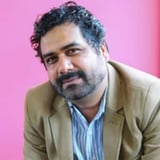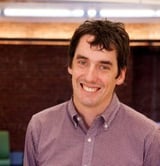Summary
Did you know that the terms "bureaucracy" and "information worker" were both invented by sociologists, long before either thing existed? Did you know that the 2008 crash was accurately predicted by an anthropologist? Many people don't realize that social research drives robust foresight. This is the kind of value even a very junior UX researcher can contribute. In this talk, Sam Ladner will describe how researchers can sift and track weak signals, how to create trend reports, and how to predict areas of change.
Key Insights
-
•
Confidence is essential for UX researchers to lead strategic foresight and gain a seat at the decision-making table.
-
•
Max Weber’s insight of standardized paper led to the concept of bureaucracy, showing mundane objects can signal systemic shifts.
-
•
Strategic foresight requires combining technological, social, economic, and political signals, not just focusing on new technologies.
-
•
Avoiding WEIRD biases is critical; mental models differ vastly across cultures and affect research outcomes.
-
•
A generic foresight framework involves scanning signals, interpreting them, imagining futures, then planning strategies accordingly.
-
•
Backcasting, imagining a future and then working backwards, is a powerful alternative to traditional forecasting.
-
•
Rigorous foresight means being able to explain your research choices and tradeoffs, not just following scientific method blindly.
-
•
Persistent scanning and well-organized coding systems, inspired by the historical commonplace book, help track and synthesize weak signals over time.
-
•
Anthropologist Gillian Tett successfully predicted the 2008 financial crisis by integrating social, cultural, and technological changes.
-
•
Being too early with a prediction is okay; maintaining preparedness and continually collecting data is key to eventual success.
Notable Quotes
"This talk is more than anything else, it’s about confidence."
"You have to have a point of view, and you have to lead in order to get that impact in strategic foresight."
"Some of the most mundane objects can signal change."
"The boss’s son is no longer the default backup boss; there are now written rules accessible to all."
"When you mix trends together, you will see where change is likely to occur."
"You have to be careful not to be too weird; mental models differ internationally."
"Rigour really is just a method; it’s knowing why you made the choices and tradeoffs you did."
"Sometimes you’re too early. Don’t fear. File this away and keep your powder dry."
"I am swimming in a sea of information, like a little fish, and eating all the stuff."
"Ask yourself, who is not included in this future? Be self-reflexive to reduce bias."
Or choose a question:
















More Videos

"Meetings don’t exist for decision making but for brainstorming, catching up, and one-on-ones."
Ana FerreiraDesigning Distributed: Leading Doist’s Fully Remote Design Team in Six Countries
January 8, 2024

"We automate the entire flow so once people react in Slack, they’re invited automatically to sessions."
Roy Opata OlendeHow Zapier Uses ‘All Hands Research’ to Increase Exposure to Users
August 6, 2020

"Designers often come out of schools without ever doing competitive analysis or considering existing design patterns."
Kit Unger Jackie Ho Veevi Rosenstein Vasileios XanthopoulosTheme 2: Discussion
January 8, 2024

"Not growing the team was disheartening but led me to create training for partners to start taking a user-centered approach themselves."
Abbey Smalley Sylas SouzaScaling UX Past the Size of Your Team
January 8, 2024

"AI has no understanding of consequences — humans are the ones to bring that understanding."
Helen ArmstrongAugment the Human. Interrogate the System.
June 7, 2023

"Autoethnography and video diaries enable participants to capture aspects of their lives that researchers might not see otherwise."
Bas Raijmakers, PhD (RCA) Charley Scull Prabhas PokharelWhat Design Research can Learn from Documentary Filmmaking
March 11, 2022

"Sometimes with kids, you just have to get artifactual data or creative outputs because they can’t always articulate."
Mila Kuznetsova Lucy DentonHow Lessons Learned from Our Youngest Users Can Help Us Evolve our Practices
March 9, 2022

"Using analogy is very difficult for AI because it requires a unique human ability to connect and engage through storytelling."
Weidan LiQualitative synthesis with ChatGPT: Better or worse than human intelligence?
June 4, 2024

"Product manager is not the CEO of the product and I don’t think that’s a very helpful metaphor."
Christian CrumlishAMA with Christian Crumlish, author of Product Management for UX People
March 24, 2022
















